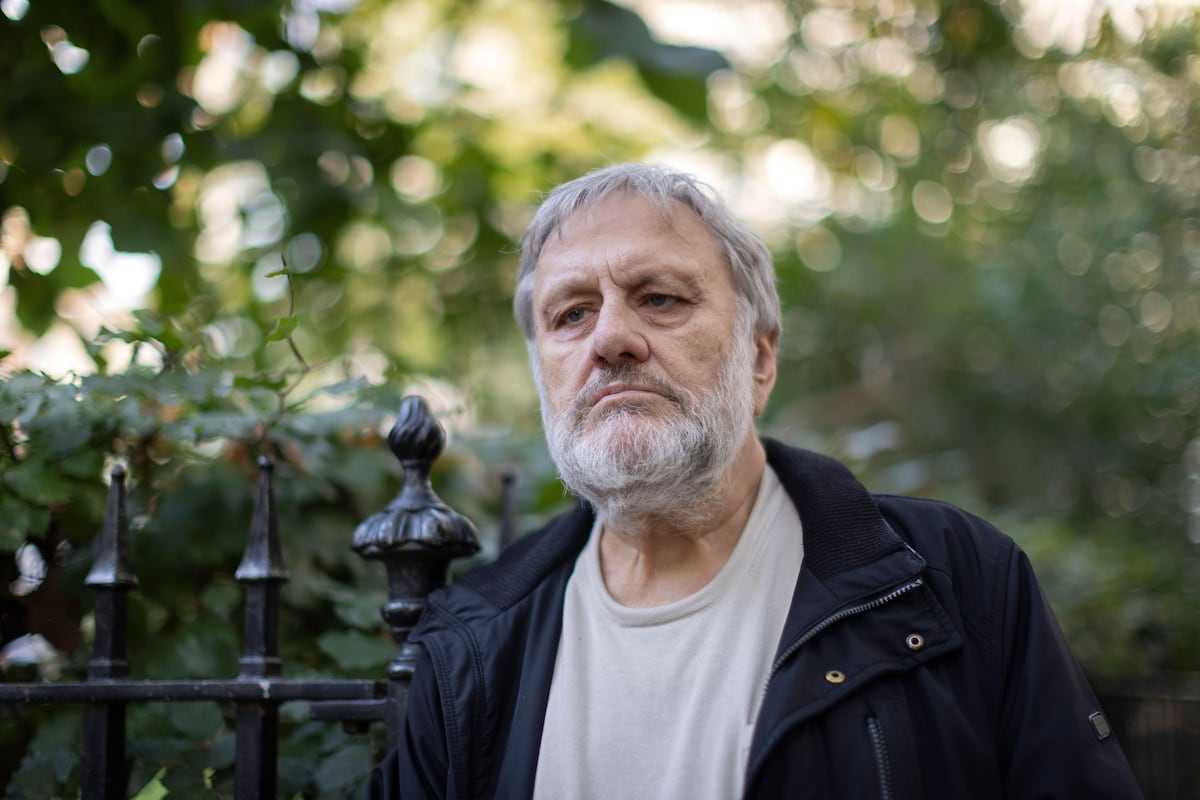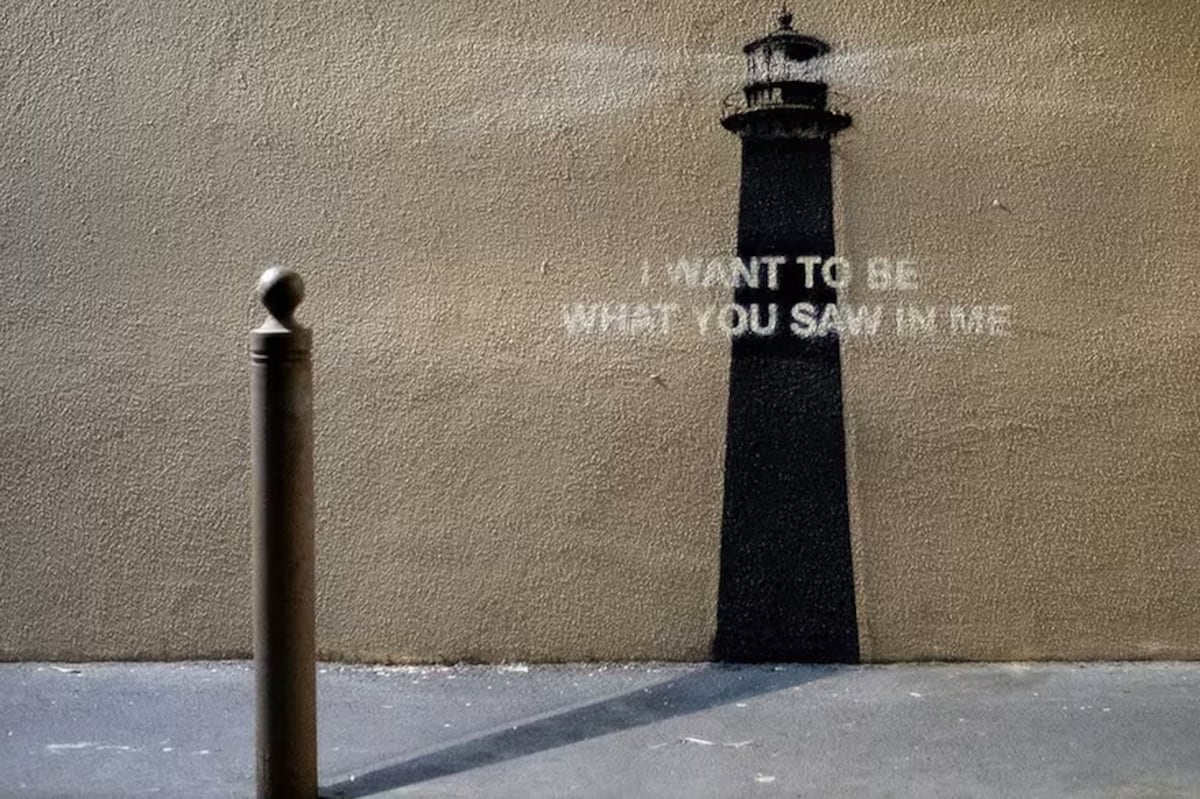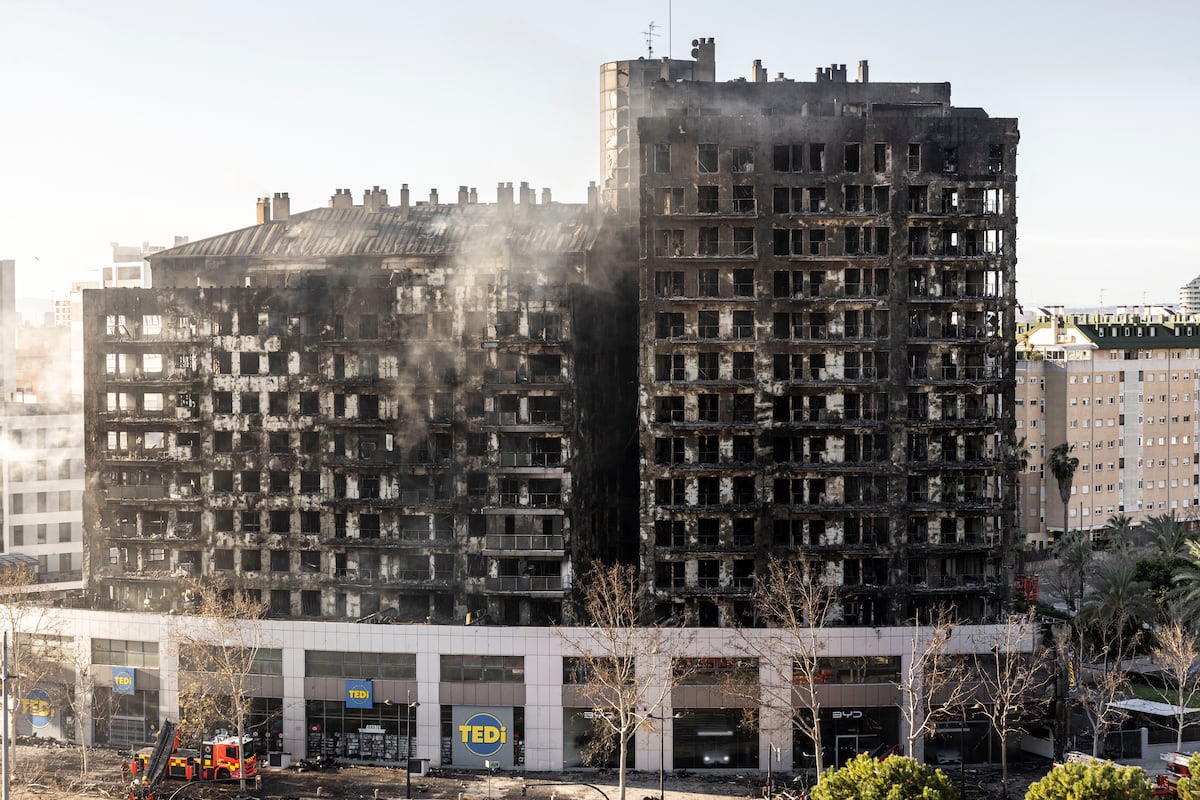[ad_1]
Slavoj Žižek hates parties. He hates small talk, hates moving from one group to another, hates long dinners, and even hates teaching. “In my old age, I’m becoming very misanthropic. I hate people.” He also hates wisdom and the idea of a slow death. The list of things he hates grows considerably throughout this interview; he is not a man of half-measures and doesn’t mince words.
He is a conscience agitator, a controversial philosopher, a man who navigates comfortably in the waters of political incorrectness. He likes to provoke — provoke with what he says, provoke with his ideas. Often, when about to drop one of his gems, he issues a warning with an “I know this is going to be controversial,” and then dives in. Sometimes, he even curses and then backtracks. As Spanish philosopher Marina Garcés says, he is a man who understands philosophy as an act of uncomfortable radicalism that doesn’t have to please anyone.
The Slovenian thinker, 76, one of the most influential and popular philosophers of recent times — who resonated strongly with certain segments of the alternative left (in Spain’s case, the heirs of the 15-M anti-austerity movement), and also finds echoes among communists and red-browns — declares himself a Marxist, an heir to the German idealism of Hegel and the ideas of French psychoanalyst Jacques Lacan. Always critical and biting in his views on the course of the capitalist system — see, for example, Trouble in Paradise (2016) — as much loved as he is criticized, his latest book is Against Progress. It’s a collection of 13 essays published here and there — some on the Substack platform — in which he tries to sound the alarm about what hides beneath what is repeatedly presented to us as progress: a sacred totem under which ideas (sold to us with that supposedly indisputable label) roam freely.
Prolific and, as some would say, verbose, he says he’s lost track of how many books he’s written — but it’s certainly over 50, including The Sublime Object of Ideology (1992), The Ticklish Subject (2001), and Too Late to Awaken (2024). Today, he is concerned about the direction the world is heading, warns us to prepare for major emergencies, and observes — with historical irony — how the new populist right is adopting pseudo-revolutionary language, while the left seems to have become the guardian of law and order. “As [Greek economist Yanis] Varoufakis points out — and it’s already happening,” he says, “what Trump and the populists are doing is, in practice, a revolution; it’s not a socialist revolution, but they are radically changing capitalism as we know it. The new populist right is the one carrying out a revolution.”
The interview takes place via videoconference at Žižek’s explicit request — EL PAÍS always prefers in-person interviews, except when there’s no other choice: this is one of those cases. Žižek is full of energy and humor, a passionate man who leans into the computer screen to make his points even more emphatically — he exclaims, shouts, underlines his ideas.
Question. The renowned German philosopher Peter Sloterdijk said in Berlin, in a July 2024 interview with EL PAÍS, that you were one of the thinkers who most interested him at the present time. What do you think about that?
Answer. Paradoxically, Peter Sloterdijk is one of the few contemporary philosophers with whom I feel truly connected. He’s not a neoconservative, as some people think; he sees the dangers of what we consider progress. I think he’s very aware that the era of the European democratic and social welfare state is over.
Q. Sloterdijk also said that you had truly introduced a dimension of dark humor into philosophy — the only tone it had been really missing. He added that it was quite an achievement, given the cost of letting go of the pretense of seriousness.
A. I absolutely accept this characterization, but I think that with my dark humor I’m only faithfully reproducing our objective reality. Look at what’s been happening recently in Israel. The mobilization of tens of thousands of soldiers for the total ethnic cleansing of Gaza. They’re throwing out all the Palestinians, and you know how they justify it — first, in religious terms. Israel is becoming more fundamentalist than the surrounding Arab countries. Today, formally, it acts the same way as ISIS; it justifies its political decisions by referring to its sacred texts. And then its government goes and says it’s doing all this to protect the Palestinians because they can’t live in Gaza. If that isn’t dark humor, I don’t know what is.
Q. In your latest book, you define yourself as a “moderately conservative communist.” What does this mean?
A. It means that I’m simply a communist, not in a theoretical or complex way. Look at our world today. We have at least three megaproblems: nuclear war, the ecological crisis, and artificial intelligence. Speaking of intelligence: studies have been done that periodically measure intelligence quotient. They make it clear, unambiguously, that since 2010, most of humanity has become increasingly stupid — literally. We rely so heavily on digital technology that we simply think and reason less and less. Until 2010, we were a little smarter every year. Now the trend is downward. What can we do? We need global cooperation to confront this, as well as the ecological disaster, and the danger of a new nuclear war. Communism, for me, is not the old Stalinist Politburo. We need more compulsory forms of cooperation. The blackout in Spain showed that precisely because we are so developed and interconnected, we are much more vulnerable. Now, a small accident, a relatively minor natural disaster, paralyzes everything. To confront these problems, we need communism, understood as coordination mechanisms that cannot be left to markets, which limit the sovereignty of states.
Q. Yes, but how is this implemented?
A. I’m pessimistic. We live in an age of ignorance. We talk about disasters, but we don’t take them seriously. We want to spend a little more on environmental protection, blah blah blah, but we want to continue living our relatively comfortable lives. We haven’t yet faced a big enough threat.
Q. Could we have these comfortable lives, as you say, with some formula of supranational communism?
A. We shouldn’t think of communism in totalitarian terms. I’m going to say something even crazier. You know what I like, ironically, about Donald Trump? He declared a national emergency. He did it for the wrong reasons — over the border issue — but I believe we have to accept that we’re approaching a global emergency given the problems we’re facing.

Q. Is Trump doing the right thing for the wrong reasons? What is he doing right?
A. Governing by decree in an emergency situation. We are in a state of emergency. Democracy — and on this point, I am very pessimistic — is losing its effectiveness. What I am saying is very problematic, but times are coming when we need faster and more effective decisions. It was done during the pandemic, and Spain did it well. Centralized decisions but connected with civil society and social organizations. The pandemic was a good example of what awaits us: a state of emergency.
Q. So democracy is not efficient in emergency situations?
A. I support democracy. I’m not crazy. We need genuine freedom of the press. Those in power must receive genuine feedback on what people think, and I know this doesn’t happen in China. But in an emergency, people prefer efficiency; they accept it. We must find, within the nation-state, forms of cooperation that go beyond the structure of the governing party, the opposition, and so on. With that kind of regime, attention is limited by the next election. What I admire about China is that while of course it doesn’t have democracy, its leaders don’t think about how they’re going to survive the next four years, but rather about what will become of China in the long term. I think it’s a question of survival. In the next two or three years, nothing serious may happen. But my axiom is that we’re approaching states of emergency.
Q. And do we need autocracies to deal with them?
A. I’m moving on to an even more problematic aspect. I’m not against charismatic leaders. A good leader is one who gives you hope. Apartheid wouldn’t have ended without a figure like Mandela.
Q. Churchill is credited with saying, “Democracy is the worst form of government, except for all others.” It’s a simliar situation with capitalism; you adressed this in your book Trouble in Paradise. It’s unfair and destructive, yes, but what’s the alternative? What’s the alternative to democracy and capitalism?
A. Here I’ll give you an answer that, again, is very problematic for many. Although I disagree with Yanis Varoufakis, I agree with him that the left was dreaming of the decline of neoliberalism — and then Trump came along and went even further. Trump is the one who more or less abolished neoliberalism. The era that Nixon ushered in in 1971 is over. What the left needs to do is forget this old, naive idea that Trump is a mistake, that we should return to the pre-Trumpian, pre-populist welfare state. The way it worked led us to neoliberalism. And Trump stopped the crisis of liberal capitalism better than much of the left. Accepting this, the left must invent something new, or it will be finished.
Q. And so, in your opinion, what should the left do?
A. I know it’s problematic, but the left must think — I won’t say about abolishing the market or capitalism, but about subjecting it to stronger collective control. Even if that means a stronger state — but I’m not talking about the nation state. I believe in more global control, first pan-European, and then global. In the face of ecological threats, natural disasters, and artificial intelligence, there must be stronger global cooperation.
Q. With all the threats we are facing, is it possible to think of a better world?
A. I’m pessimistic about this. I don’t want to imagine a better world. We have to be clear that the good old days of liberal social democracy are over. The rules have changed. We can’t talk about a better world, but rather about collective survival, about continuing some kind of normal life, with freedoms, in a state of emergency.
Q. Let’s change the subject. Criticism of woke culture is mounting from both the right and the left. Are you against wokism?
A. I’m against cancel culture. For people who practice cancel culture, the official goal is supposedly to promote diversity and inclusion. But what they’re actually doing is excluding those who don’t accept their definition of inclusion, and so on. If you look at woke culture in detail, it’s upper-middle-class people targeting lower-class people.
Q. In Sex and the Failed Absolute, you discussed the topic of relations between men and women at a time when the concept of consent has taken center stage. Where do you stand on the debate around consent?
A. I don’t like the idea that everything revolves around consent. In prostitution, there can also be consent. True violence and exploitation in sexual relationships can take the form of something consensual.
Q. And you are against prostitution, of course.
A. Unfortunately, yes. Although the liberal thing to do these days is to say “why not?” I’m perhaps very naive about this. I think sex is something intimate.
Q. How would you describe where you are in your life?
A. I’m sad, I’m panicking because I’m getting old. I’m a workaholic; I don’t work to live, I live to work. I’m 76 years old, I need a lot of sleep, and I’m losing my ability to work. I don’t like it. I don’t think age brings any wisdom.
Q. It doesn’t bring wisdom?
A. No! Wisdom is what I hate the most! There’s a very vulgar saying in Slovenia: you can’t piss against the wind [laughs]. Wisdom is absolute conformist stupidity.
Q. Let me ask you one last question, and feel free not to answer it. Do you think about death?
A. No. I want to die like my friend Fredric Jameson, of a heart attack. I hate the idea of dying slowly, thinking about what my legacy will be, blah blah blah. I want to work until I die. To fall asleep thinking tomorrow is another day and not wake up. I can’t imagine myself sitting around like an old idiot, not working. I’d even take my own life.
Q. You would take your own life?
A. I don’t want pain. I’m not afraid of death, I’m afraid of dying slowly and painfully. If I found out that my wife or one of my children had died, my first question would be: how did it happen? If it was an accident, instantaneous, I’d say: oh, okay. And I’d continue working on my computer. If it were a slow and painful death, I couldn’t bear it, I’d probably take my own life too.
Sign up for our weekly newsletter to get more English-language news coverage from EL PAÍS USA Edition
[ad_2]
Source link







Comentarios